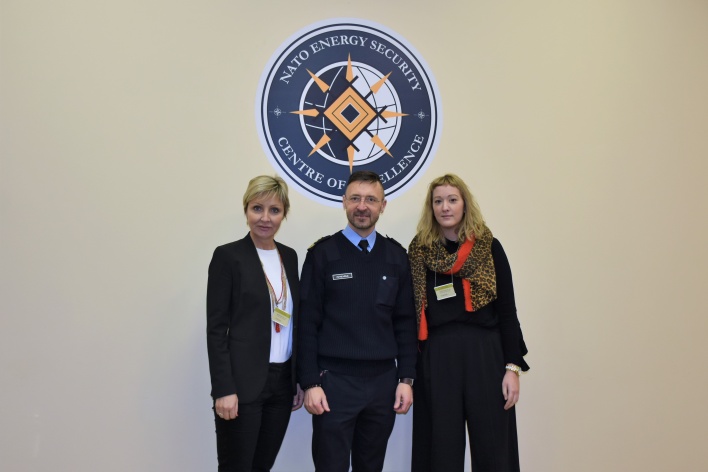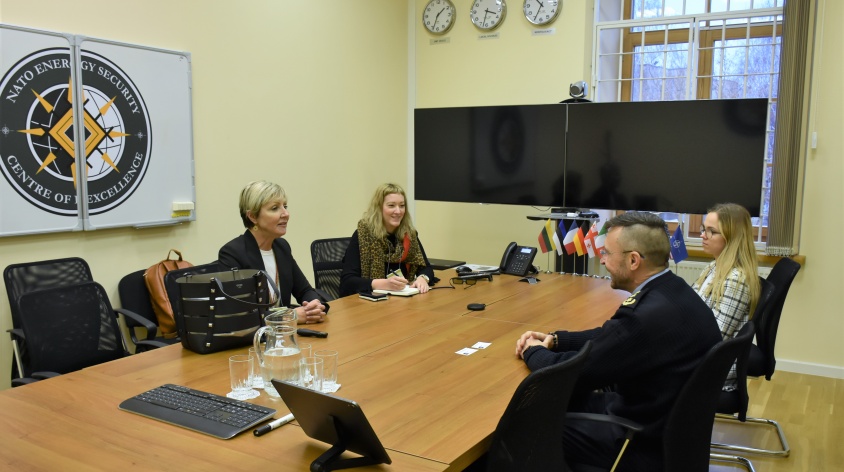Chief of the Center for Euro-Atlantic Studies (CEAS) visited the NATO ENSEC COE
On the 20th of February 2019, the NATO Energy Security Centre of Excellence was visited by the Chief of the Center for Euro-Atlantic Studies (CEAS) Ms Jelena Milic and her colleague Project Manager Ms Anda Petkovic. The NATO ENSEC COE Director Colonel Romualdas Petkevičius greeted the guests and invited them to the Director’s conference room.
The guests were given a presentation on the Centre’s main functions, aims and expertise. Also the delegation was briefed on current tasks and projects of the COE. Delegation members were particularly interested in the possibilities of cooperation between the COE and Center for Euro-Atlantic Studies.
Both parties were very keen on discussing recent regional security problems of energy sector in Serbia. Chief of the Center for Euro-Atlantic Studies (CEAS) MS Jelena Milic raised a concern of growing hybrid treats coming from Russia. Critical energy infrastructure protection in Serbia and Balkan region was recognised as an urgent and important weak spot which has to be addressed now or at least in the near future. In the light for possible solution seeking the discussion further evolved into possible cooperation directions on energy security issues on Serbian/Balkan region. Both sides agreed to organise Subject Matter Expert exchange in the upcoming events and projects.
Center for Euro-Atlantic Studies (CEAS) is an independent socio-liberal think-tank organization from Belgrade, Serbia. In the last ten years, CEAS has become recognizable in Serbia and in the region by advocating, researching and preparing recommendations on EU and NATO policies, the Western Balkans’ Euro-Atlantic integration process, regional cooperation, security sector reform, and non-democratic and hostile hybrid and conventional obstructive actions conducted by state or non-state actors. In the past several years, CEAS has particularly specialized in analyzing and researching the increased interest of Russia in the Western Balkans, and its influence on the democratization of institutions, economic prosperity, and, most importantly, the Euro-Atlantic integration of Serbia and the region.
More about Center for Euro-Atlantic Studies (CEAS): https://www.ceas-serbia.org/en/about-ceas/about-ceas



